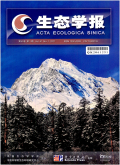生态学报2024,Vol.44Issue(15):6417-6423,7.DOI:10.20103/j.stxb.202312222784
青藏高原东北缘濒危马麝迁地保育种群繁殖成效与社会性和社会网络的关系
Reproduction success and the relationships to sociality and social networks in ex-situ conserved Alpine musk deer in the east-northern edging area of the Qinghai-Tibet Plateau
摘要
Abstract
Musk deer farming is one of the effective methods in the Ex-situ conservation of the endangered Alpine musk deer(Moschus chrysogaster)and the sustainable supply of medicinal musk.It is important to understand what are the key constraints on the reproductive success of Ex-situ conserved musk deer and the relationship with sociality and social network traits.This study was conducted at the Pingliang Musk Deer Breeding Center in Gansu province,on the east-northern edge of the Tibetan Plateau,between July 1 and August 31,2022.We used focal sampling and all-occurrence recording methods for behavioral sampling of 21 adult female musk deer.It was complemented by concurrent fecal sample analysis for steroid metabolite levels.We analyzed the relationships between the reproductive success of musk deer and their sociality,social networks,and fecal steroid hormone levels.The results indicated a significant correlation between the sociality of musk deer and their reproductive success(r=0.551,P<0.05),a significant negative correlation with fecal cortisol metabolite levels(r=-0.437,P<0.05),and a non-significant correlation with fecal estradiol metabolite concentrations(r=0.066,P>0.05).The cortisol levels((10.75±0.99)ng/g)and estradiol metabolite levels((6.61±0.79)ng/g)of highly social musk deer did not significantly differ from those of less social individuals((13.70±1.68,5.20±0.99)ng/g,respectively;P>0.05).Reproductively successful female musk deer exhibited higher levels of sociality(19.86±1.88)%)compared to reproductive failures(12.38±1.46)%;P<0.05).Group social network density was significantly correlated with the reproductive success of group individuals(r=0.762,P<0.05),whereas it showed non-significant correlations with fecal cortisol and estradiol metabolite concentrations(r=-0.355,P>0.05;r=0.347,P>0.05).Fecal cortisol metabolite concentrations of reproductively successful female musk deer((10.31±0.86)ng/g)were slightly lower than those of reproductive failures((13.98±1.60)ng/g;r=-0.420,P=0.058),while fecal estradiol metabolite concentrations showed no significant correlation between the two groups((6.63±0.90)ng/g for reproductively successful,(4.78±0.76)ng/g for reproductive failures;r=0.299,P>0.05).The results indicated that the sociality and social network attributes of female musk deer can predict the reproductive effectiveness of individuals in a group domestication environment,i.e.,female musk deer with higher sociality and social network density have relatively higher reproductive effectiveness.In the practice of endangered musk deer conservation,domestication can be categorized into conservation farming and commercial farming.In conservation farming,the mode of group and then solitary domestication can be adopted to maintain the natural behavioral structure of wild-released musk deer as much as possible;in commercial farming,the mode of group domestication can be adopted to enhance the social nature of domesticated musk deer and to achieve higher reproductive effectiveness and farming productivity.关键词
迁地保育/马麝(Moschus chrysogaster)/平凉马麝繁育中心/社会性和社会网络/繁殖成效Key words
Ex-situ conservation/Alpine musk deer(Moschus chrysogaster)/Gansu Pingliang Musk Deer Breeding Center/sociality and social network/reproductive success引用本文复制引用
周鑫,吕青昕,桑珠扎西,扎西,周密,黎勇,孟秀祥..青藏高原东北缘濒危马麝迁地保育种群繁殖成效与社会性和社会网络的关系[J].生态学报,2024,44(15):6417-6423,7.基金项目
国家自然科学基金项目(32170489,32211530443) (32170489,32211530443)

